Election results 2017: Labour holds Newcastle and Sunderland
- Published
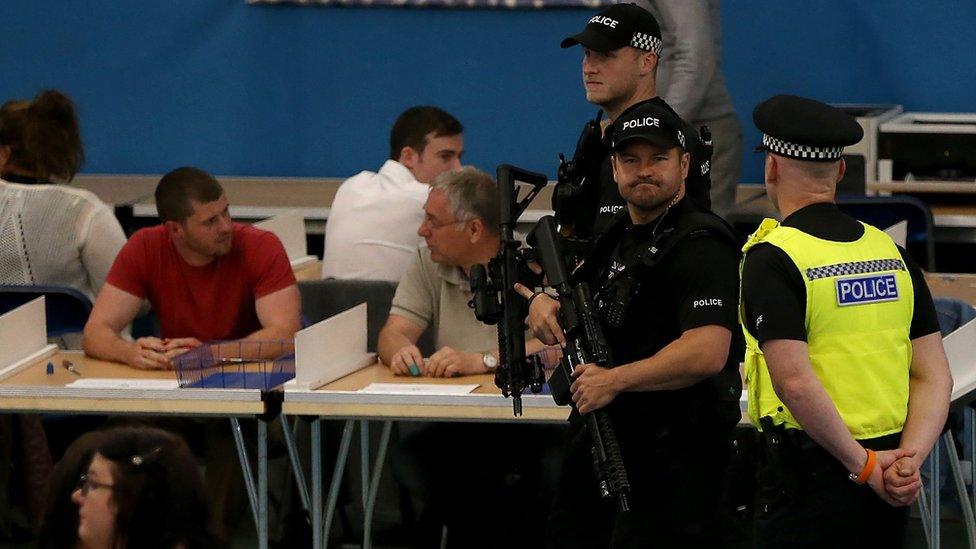
Armed police provided security at the count in Sunderland
Labour has retained seats in Newcastle and Sunderland in the first results of the 2017 general election to be declared.
Newcastle Central was declared first at 23:01 BST, followed by Houghton and Sunderland South nine minutes later.
The party has held a further 16 seats across north and south Tyneside, Sunderland and County Durham.
Labour and the Conservative's share of the votes have risen about 8.5% while UKIP's has dropped about 13%.
Labour held Blaydon, Gateshead, Sunderland Central, Newcastle East, Newcastle North, Washington and Sunderland West, Jarrow, South Shields, Tynemouth, North Tyneside, North Durham, North West Durham, City of Durham, Easington, Blyth Valley and Wansbeck.
The Conservatives kept Hexham and Berwick-upon-Tweed.
UKIP saw its share of the vote drop from 17% in 2015 to 4% this time around.
Sunderland has historically been the first place to count and declare its results but Newcastle trumped its neighbour this year amid a higher voter turnout.
Conservative Anne-Marie Trevelyan saw her share in Berwick-upon-Tweed rise from 41% to 52.5% with an increase in her majority of 6,867.
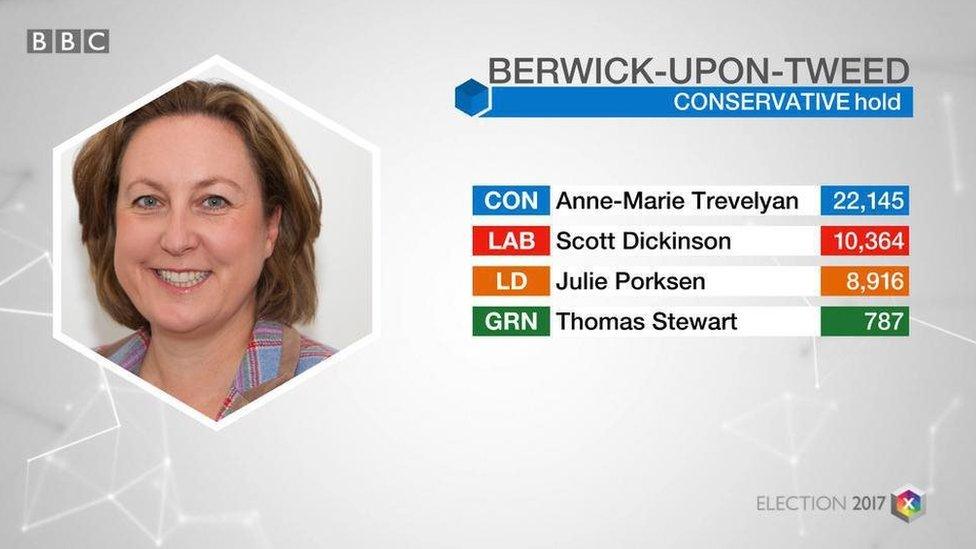
In Blaydon, Labour's share under Liz Twist rose from 49% to 56% but the majority dropped by 750.
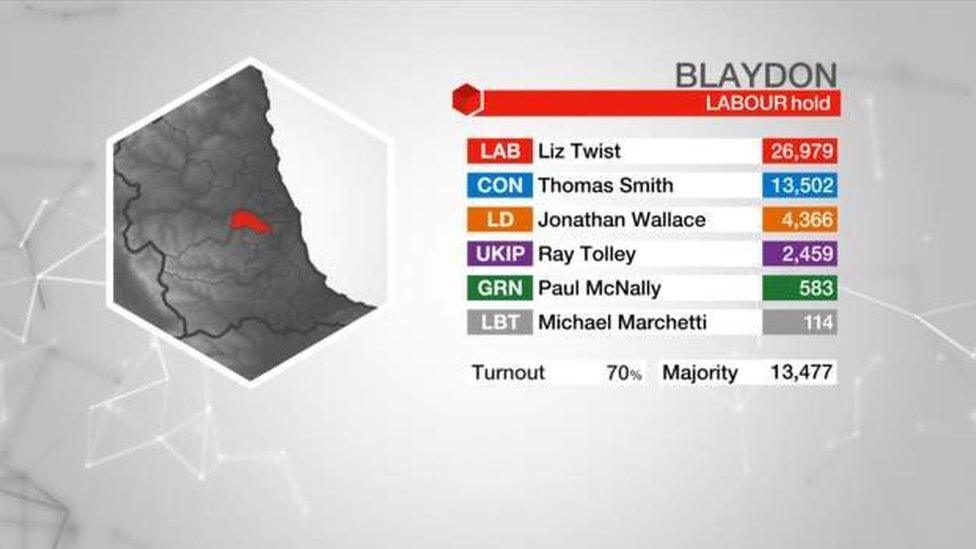
In Blyth Valley, Labour's Ronnie Campbell increased his share from 46% to 56% but his majority was cut by 1,314.
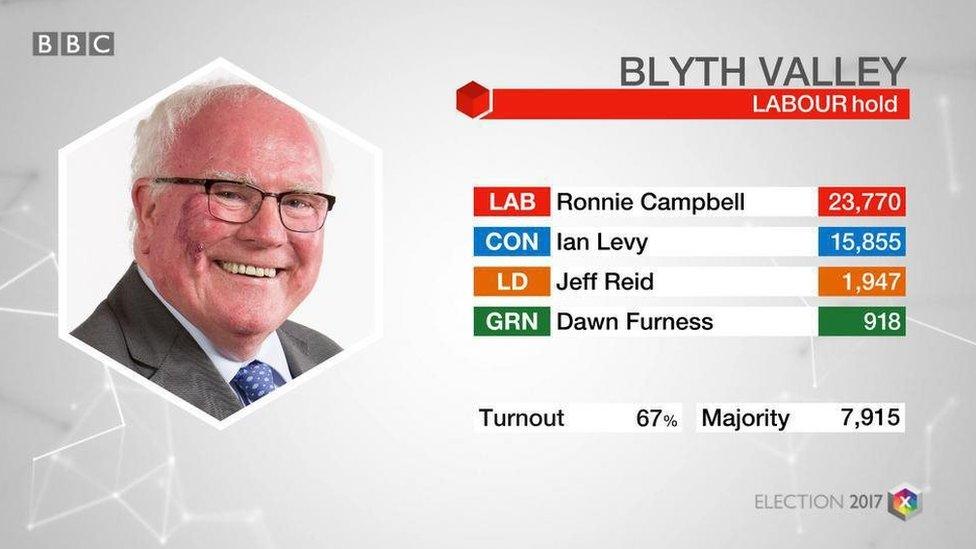
Mr Campbell, who has been the MP for Blyth Valley for 30 years, said he was "absolutely delighted".
In the City of Durham, Labour's Roberta Blackman-Woods saw her share rise from 47% to 55% while her majority increased by 925.
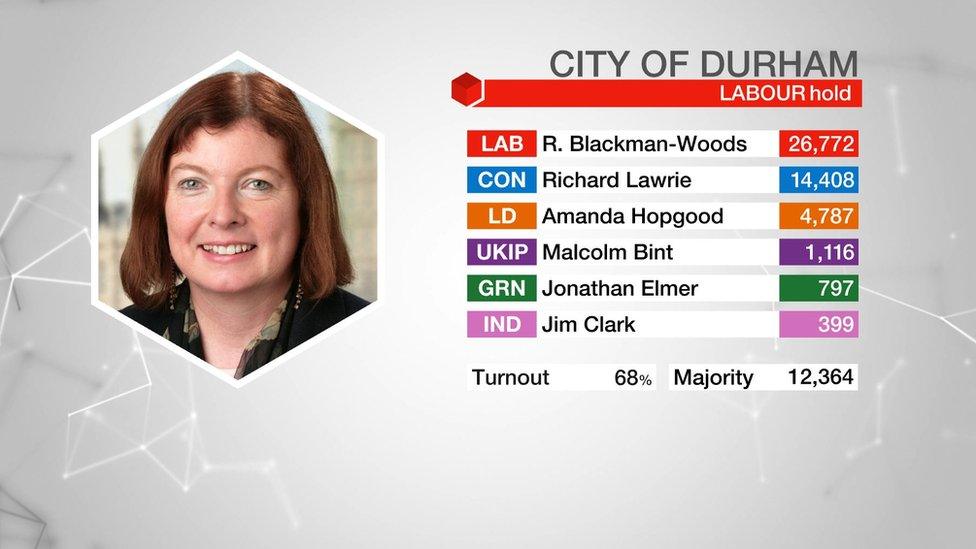
In Easington, Labour's Grahame Morris increased his share from 61% to 64% and his majority by 251.
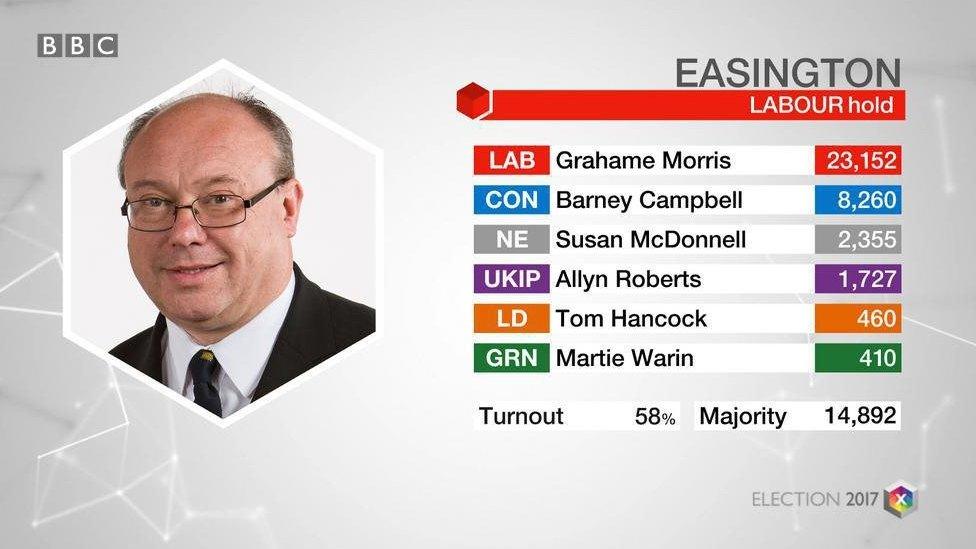
Ian Mearns in Gateshead saw his share rise from 57% to 65% and his majority increase by 2,566.
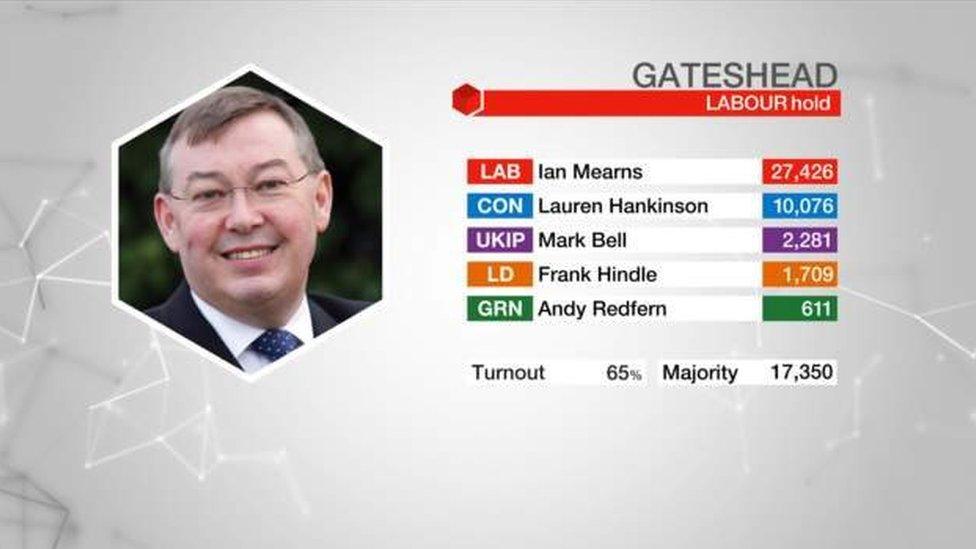
Conservative Guy Opperman saw his majority in Hexham drop by 2,795 although his share rose from 53% to 54%.
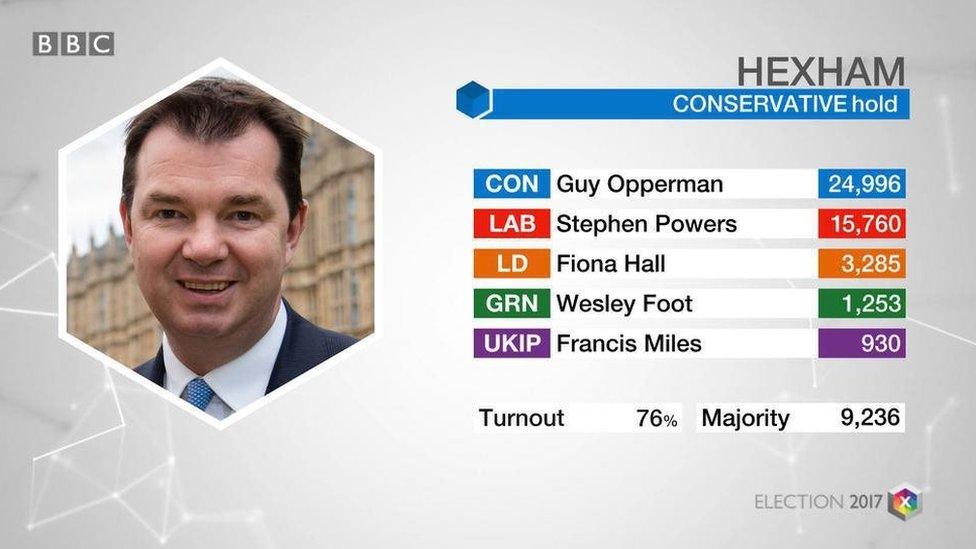
In Houghton and Sunderland South, its share rose from 55% to 60% but its majority dropped by 596.
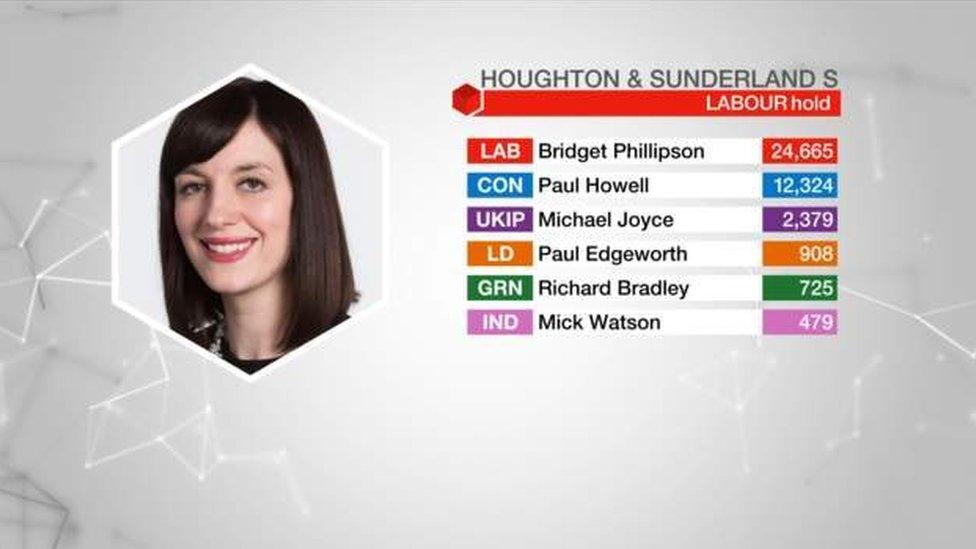
Bridget Phillipson said: "Here in Sunderland we've had a real rejection of the austerity policies the Tories have pursued.
"It's clear people want change."
In Jarrow, Stephen Hepburn saw his share rise from 56% to 65% and his majority up by 3,382.
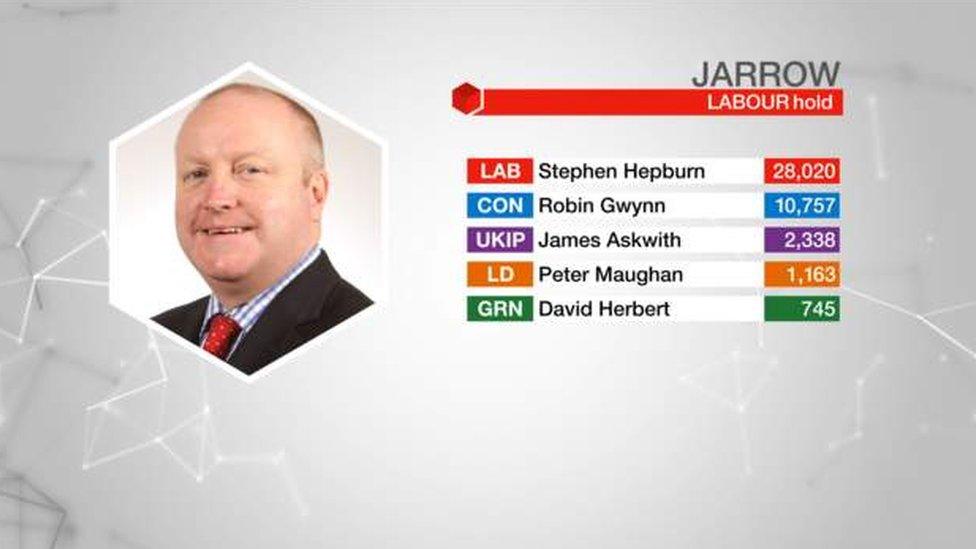
Labour saw its share of the vote in Newcastle Central rise from 55% in 2015 to 65%, while its majority rose by 2,264 votes.
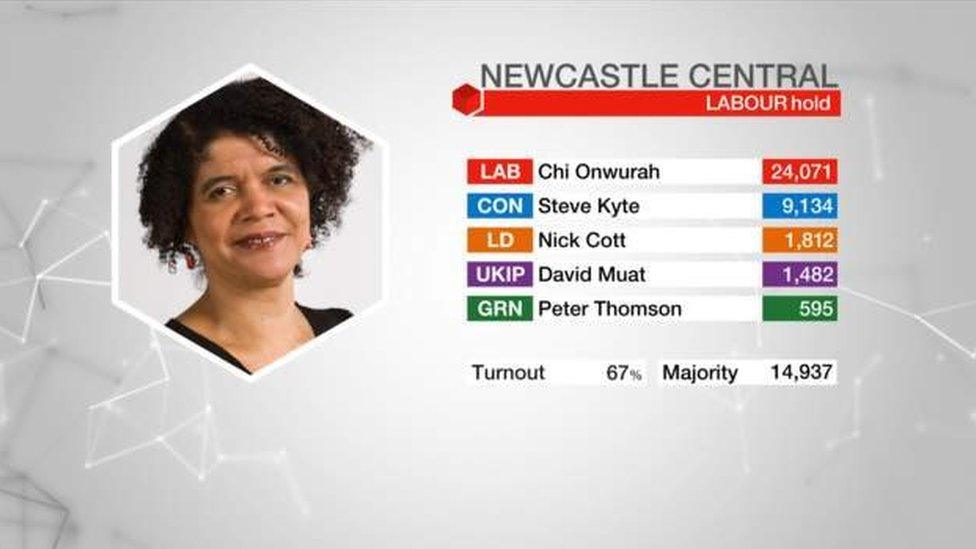
Chi Onwurah said it was "an incredible honour and privilege" to be re-elected.
"I want to thank everyone who voted for me, for the trust and confidence they have placed in me," she added.
"I also want to thank everyone who voted - whoever they voted for - because voting and democracy are so important."
The Labour vote share rose from 49% to 68% in Newcastle East and the majority increased by 6,676.
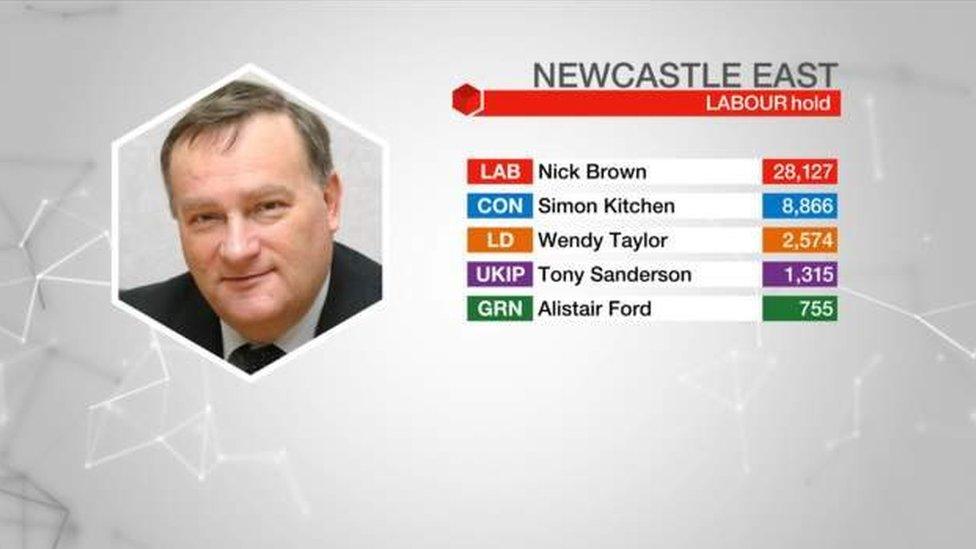
MP Nick Brown said: "It's a stunning result, the manifesto got a great response on the doorstep from different communities.
"I've had a lot of people out working very hard. It's an astonishing result."
In Newcastle North, Labour's share rose from 46% to 55% and majority was up by 196 votes.
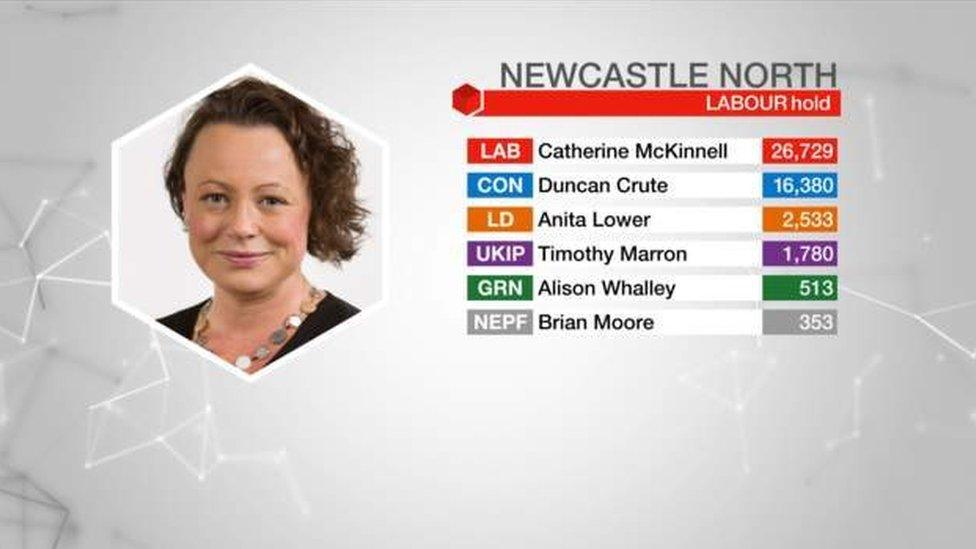
In North Durham, Labour's Kevan Jones saw his share rise from 55% to 60% while his majority fell by 705.
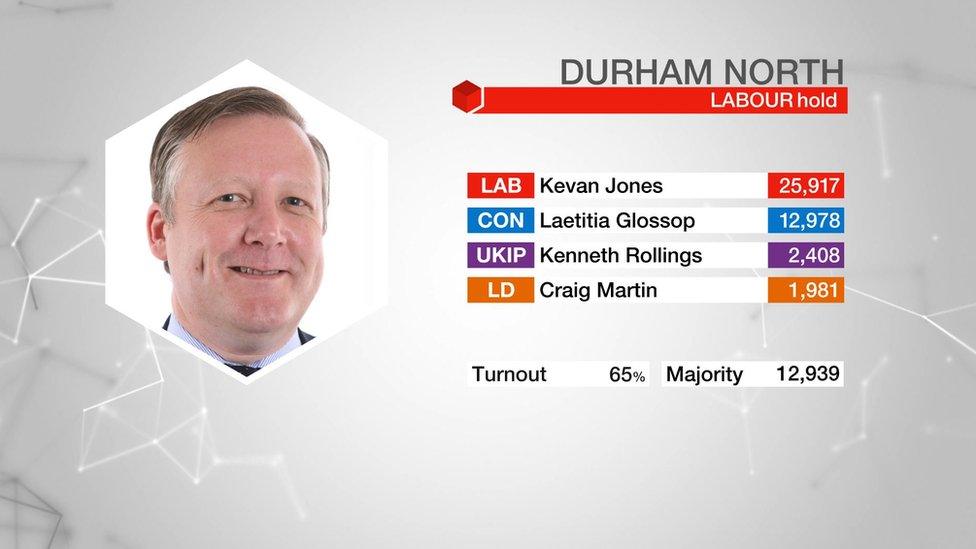
Mr Jones said Theresa May's "gamble" of calling the election had "failed spectacularly".
He said: "It's always a great privilege to be re-elected."
Laura Pidcock increased Labour's share in North West Durham from 47% to 53% although the party's share dropped by 1,264.
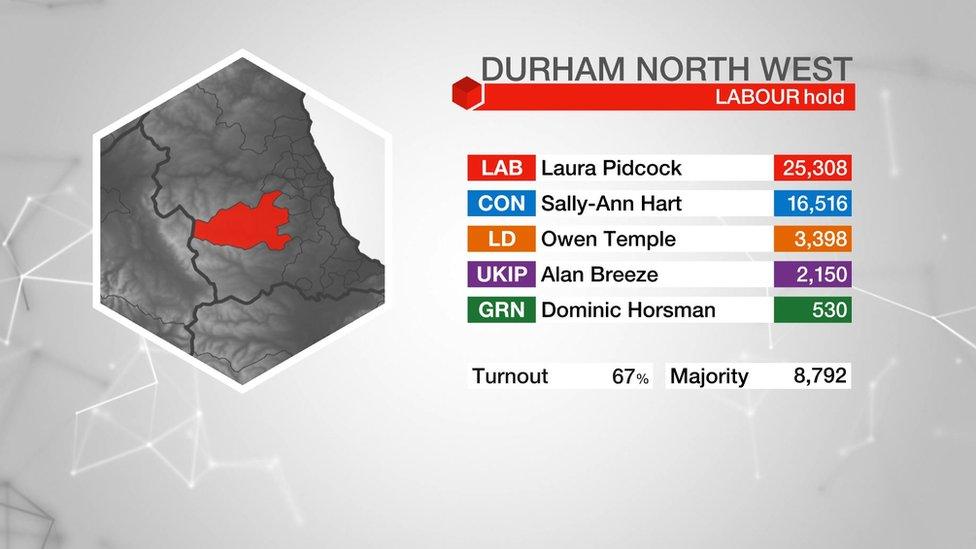
In North Tyneside, Mary Glindon's share rose from 56% to 64.5% and her majority increased by 2,090.
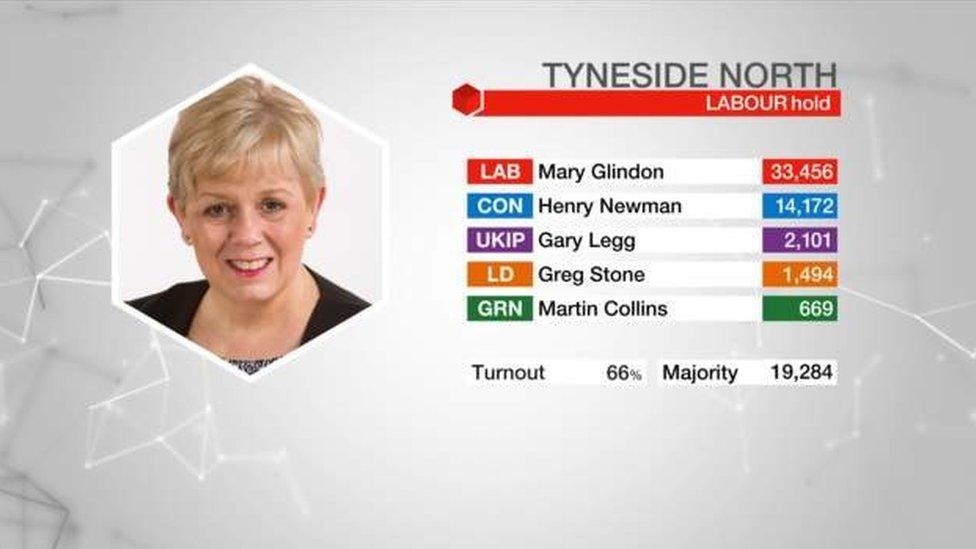
Emma Lewell-Buck's share in South Shields was also up from 51% to 61.5% and her majority rose by 3,894.
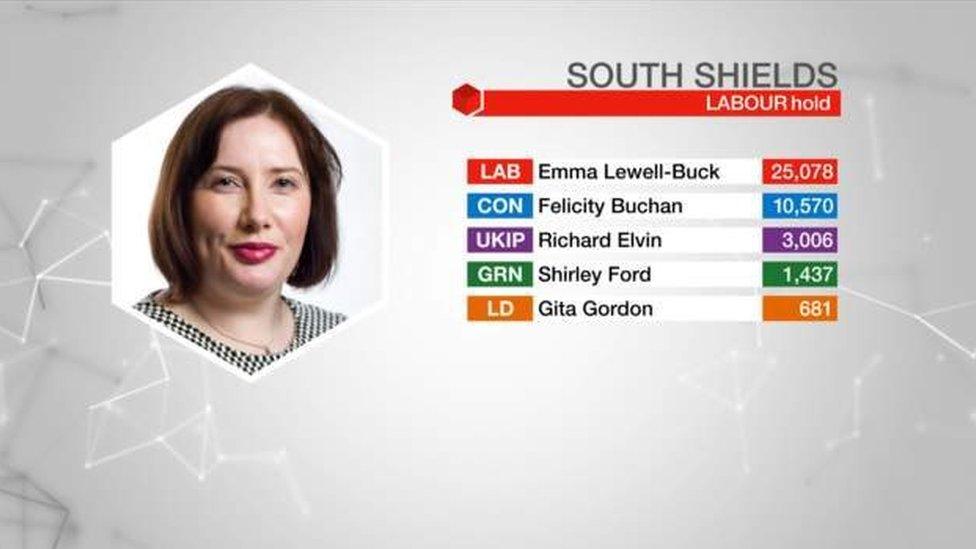
In Sunderland Central the Labour share rose from 50% to 55.5% and majority dropped by 1,182.
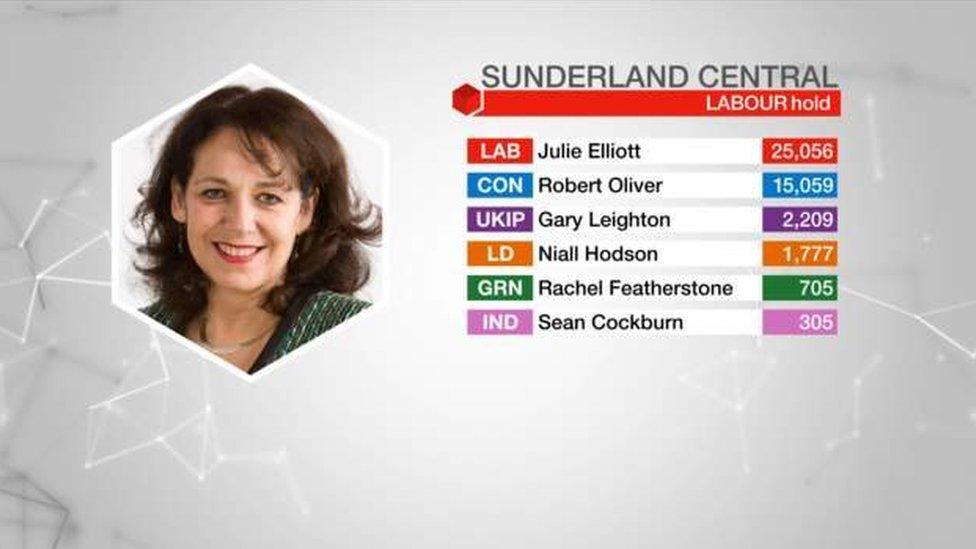
Julie Elliott said she had "listened" to "more than 6,000" people she had spoken to during the campaign and vowed to keep the promises she had made to them.
Alan Campbell in Tynemouth saw his share rise from 48% to 57% and his majority increase by 3,426.
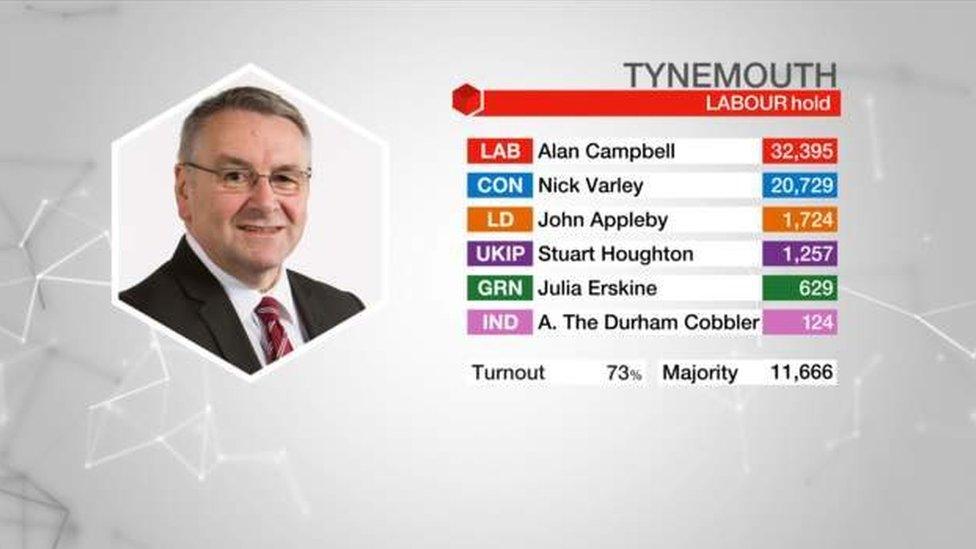
Labour's Ian Lavery retained Wansbeck with his share rising from 50% to 57% although his majority dropped by 466.
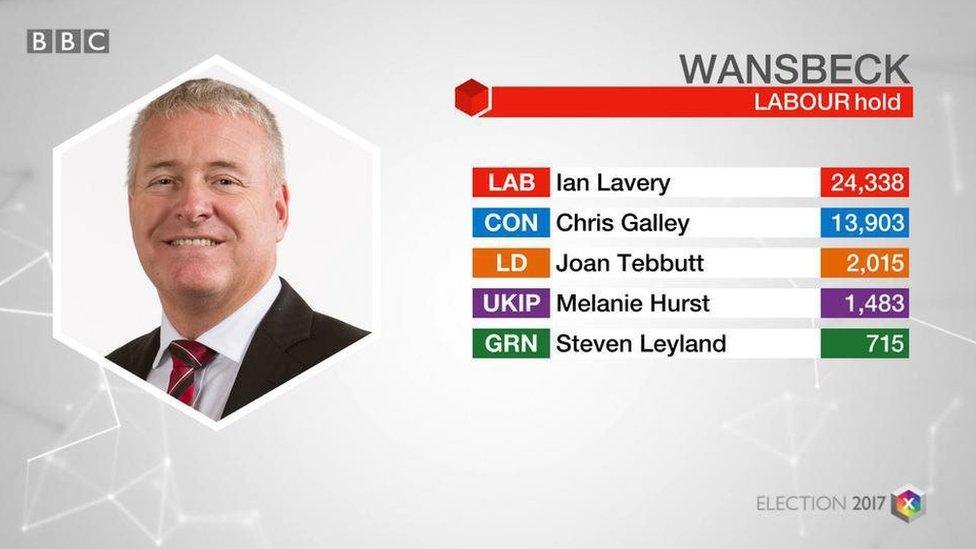
Mr Campbell said Labour leader Jeremy Corbyn had "changed the political narrative" and "excited young people to come out and vote".
In Washington and Sunderland West the Labour share of the vote rose from 55% to 61% but its majority dropped by 217 votes.
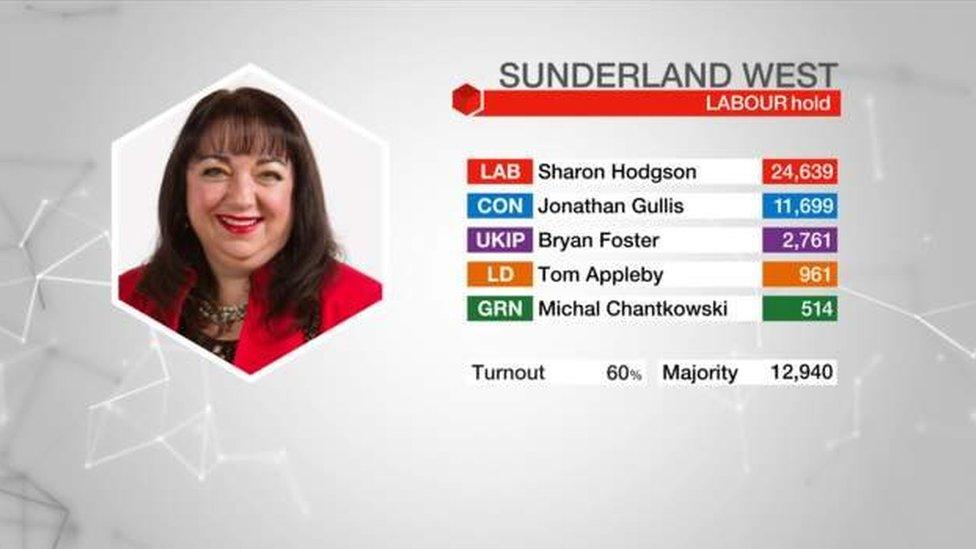
Sharon Hodgson said: "It was noticeable this campaign it was a much better reaction than two years ago and 2010.
"I felt something was happening."
- Published6 June 2017
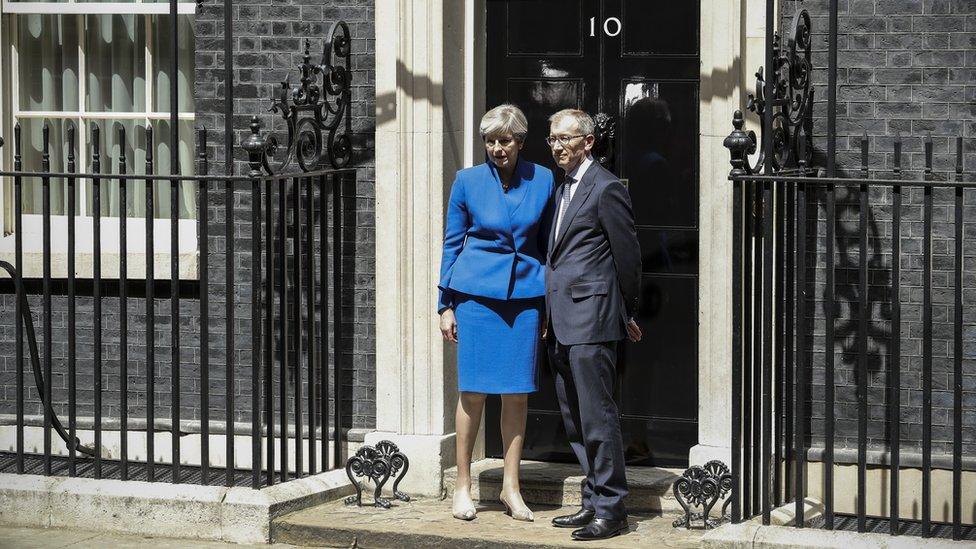
- Published9 June 2017
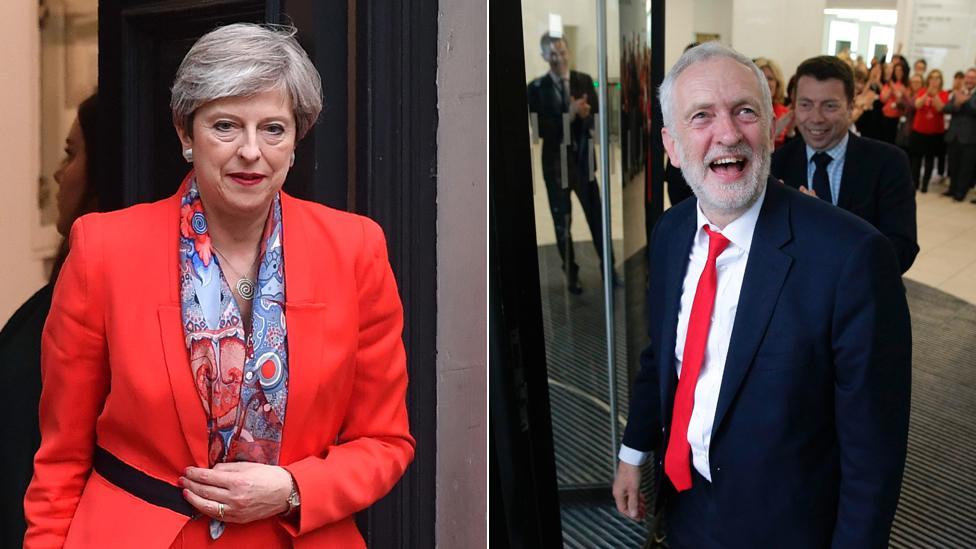
- Published7 June 2017
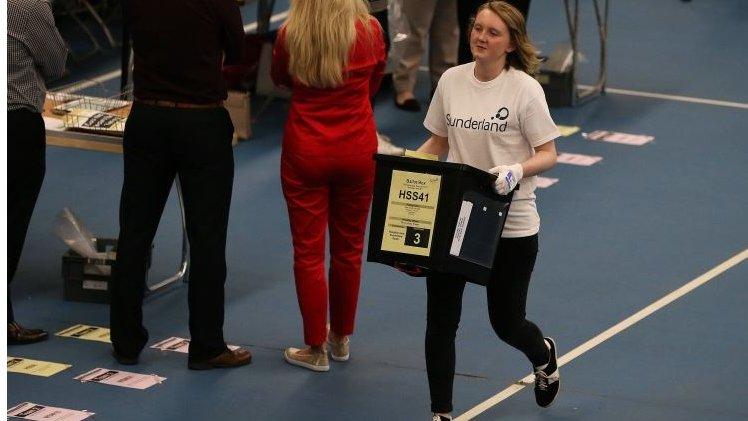
- Published9 June 2017
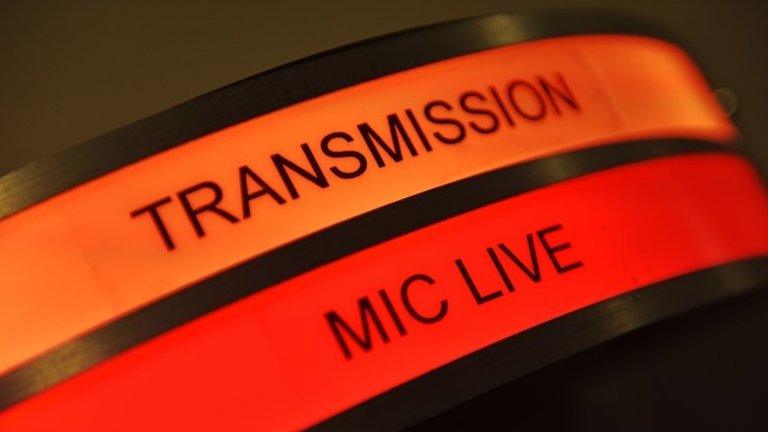
- Published7 June 2017
